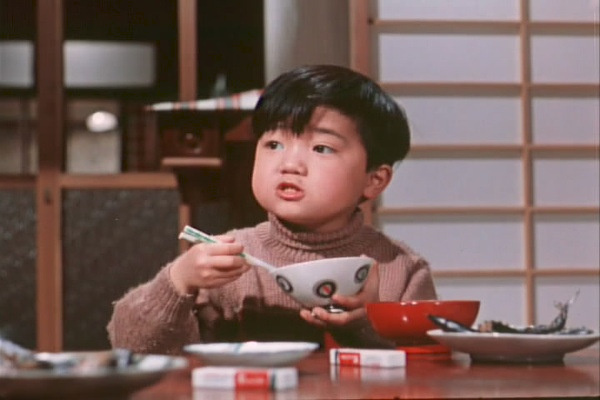Yasujiro Ozu's GOOD MORNING
Movie review by Dennis D. McDonald
The Movie
It’s the late 1950’s in a new cookie-cutter Tokyo suburb. Two young brothers are eager to get a television. A young couple nearby has one which they let the kids watch (they love sumo wrestling) but the kids’ parents are concerned that the young couple’s laid-back attitude will rub off on the kids.

It doesn’t sound like much of a story, and it’s not. But in the hands of master director Ozu (Floating Weeds) what we have is a window into a time and place in Japanese society that is so honest and delicately illuminated that we feel almost embarrassed to watch some of the day to day doings of these ordinary (and instantly recognizable) folks.
In nearly every case what we see in this movie are completely ordinary, everyday, and nearly stereotypical views of conformist suburban life presented with sensitivity, gentle humor, and only occasional gravity. A running joke about the neighborhood kids’ fascination with musical farts, for example, seems perfectly harmless and childlike. An almost clinical dissection of a gossipy rumor is shown as it passes from housewife to housewife; its disruption of the surface gentility of the community is palpable. A constantly praying grandmother, angered by her daughter’s constant complaints, mutters curses under her breath. A young man and woman, smitten with each other but too shy to do anything about it, exchange a constant stream of inanities about the weather while standing next to each other on a train platform. An out of work husband comes home drunk and, confused by the sameness of all the houses, plops himself down in the wrong front hall.
The movie is lovely to look at. The colors and lighting are lifelike, clean, and bright. Each scene, no matter how mundane, is framed and arranged like a carefully constructed painting. The sets, inside and out, are designed to convey the newness of a housing development where the only thing that distinguishes one home from the other, inside or out, are minor furnishings like teapots, cushions, and baskets.
The DVD
This is a no-frills Criterion DVD, which means there is no commentary or extras. To find out more about this movie or about director Ozu, you need to go elsewhere.
Copyright (c) 2005 by Dennis D. McDonald


